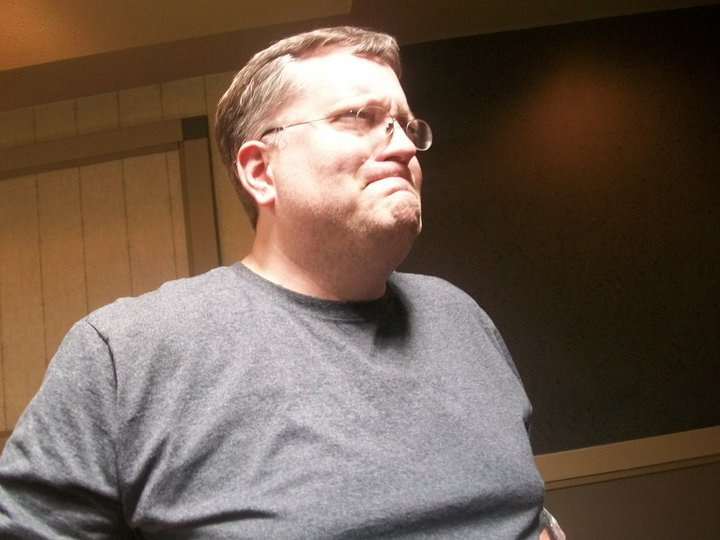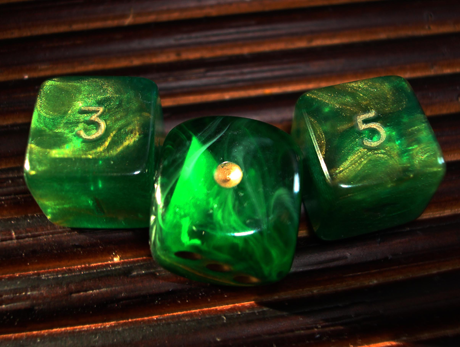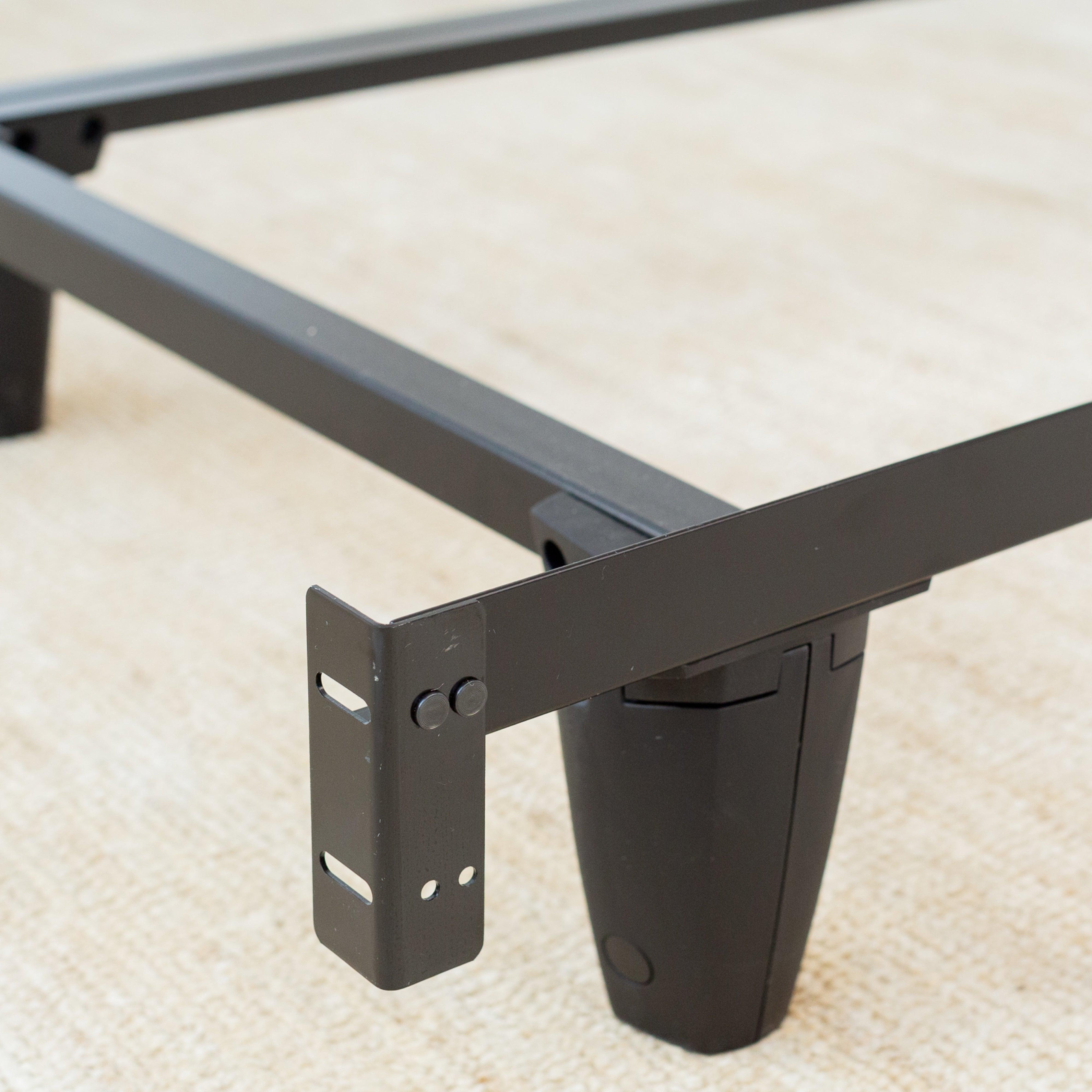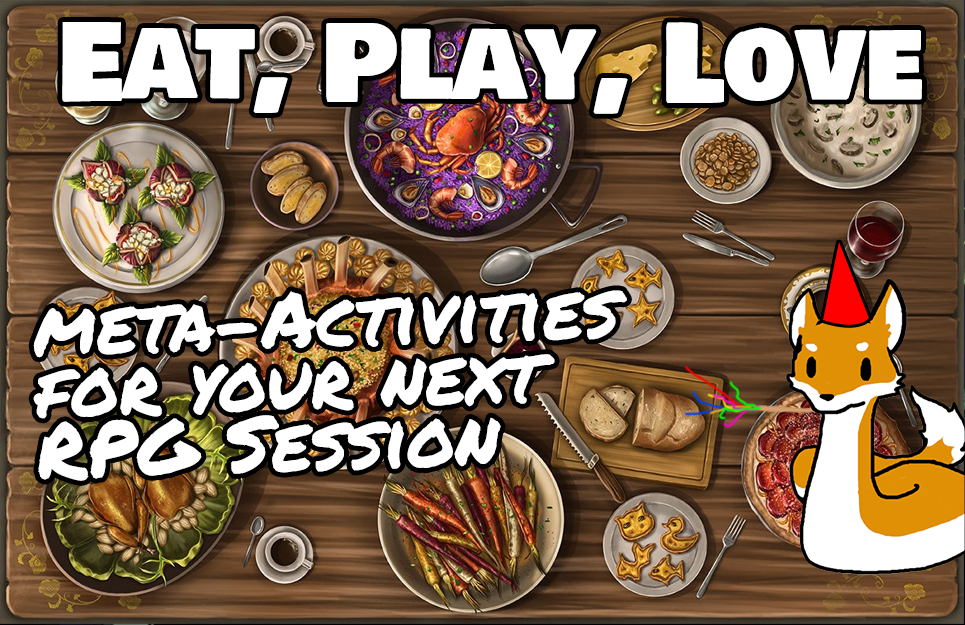In the second installment of Live Freelance or Die, we catch up with another former RPG Superstar, last year’s winner Mike Welham. We first spoke with Mike in Know Direction episode 37.
Live Freelance or Die is a twice monthly series on the often overlooked people whose work and writing for Paizo on the Pathfinder Roleplaying Game have probably made it to your table.
PC: You won RPG Superstar in 2012, when the competition was better established, and Paizo and Pathfinder stood firmly as the world’s second most popular RPG. What was the competition like that year?
Last year’s crop of contestants had a range of experience. We had one person who had never played a game of Pathfinder who made it in (he dropped out due to time constraints, though), and we had Tom Phillips who had been in the Top 32 the previous two years. Since the contest had been running for a few years, most of the competition had at least some idea of what to expect, but Paizo kept us on our toes with the twists they introduced each round. Last year’s group was awesome, with everyone showing support for their fellow competitors, but I think that’s been true of every RPG Superstar.
PC: Before entering, how much design and writing experience did you have?
I had about four years of serious work on RPG design before submitting my item for 2012’s competition, but I had very little experience when I entered an item for the inaugural 2008 competition. The Pathfinder RPG and RPG Superstar were both responsible for the kick in the rear I needed to get serious about RPG design. In between that initial spell-in-a-can entry and 2012’s raptoring gloves, I had the good fortune to work on various items for Kobold Press, Wayfinder, Rite Publishing, and Clockwork Gnome Publishing, all of which helped me to grow.
PC: What did you find most challenging about RPG Superstar?
The time between rounds was the biggest challenge for me, especially for the 4th round (design an encounter). Paizo was generous with our group by revealing the twist fairly early on, so we actually had time to work ahead in the hopes that we were going to advance to the next round. With other obligations, time got tight, though, but I believe that is one of the qualities Paizo looks for in their freelancers: Can this designer turn in good work even on a tight deadline?
PC: How did you balance your home life, day job, and gaming group with the RPG Superstar competition, and the resulting RPG Superstardom?
My home life probably bore the brunt of my RPG Superstar run, but I talked it over with my wife before I submitted and let her know the kind of time I’d be spending on it. I travelled for my day job during the final two rounds, and I spent most of my time in hotel rooms polishing up my entries, and submitted my entries a few hours early just in case the hotel wifi acted up. One facet of the contest is that you have a couple of weekends “free” since you turn in your entry on Friday and the entries aren’t revealed until the following Tuesday, so I was able to get one game session in during that time. Of course, some of the time we could have been gaming was spent with me describing my ideas for the next round.
PC: What were some of the twists that really threw you off, and how did you prepare for the rounds ahead of you not know what the next twist would be?
I tried to prepare for a wide range of possibilities when I worked ahead for the subsequent rounds. I was definitely least prepared for the organization round, even though there was no real twist. I planned for the phasic ravager to fit several reasonable CRs, aiming primarily for CR 9, so I lucked out when Paizo revealed the CR as 7. The only twist that tripped me up was that the monster couldn’t be an outsider, which is how I originally designed the phasic ravager. I ended up making a slight mistake by carrying over an outsider class skill, but the transition to aberration was smooth otherwise. For the encounter and adventure proposal rounds, I made sure I had a set of ideas I could fit into a number of different CRs. Oddly enough, I never went back to anything I had done previously for my home game.
Paizo makes things less stressful for RPG Superstar contestants by laying out the general requirements for the rounds early on, and the last two rounds haven’t changed significantly over the past couple of years. The biggest concern I had was with the open playtest Paizo introduced in Round 4 (design an encounter), especially since I didn’t have enough time to properly playtest my encounter. I definitely learned the value of playtesting from that round, especially since the high-CR version of the encounter turned out to be not so tough. Looking at this year’s schedule, it looks like Paizo is opening the encounter round up to playtesting again, so that’s quite cool.
PC: The reward for winning RPG Superstar is seeing your module, Doom Comes to Dustpawn, in print. With its release only a few months away, how does that feel?
It is still a surreal experience for me, and I’m looking forward to seeing the finished product. As you are aware from your freelancing, the finished product does not always match your turnover, so I’ll be interested to discover what my developer changed to improve the module. Also, since I made my final turnover a few months ago, it’s kind of made its way to the back of my mind as I work on other pieces.
PC: Was Doom Comes to Dustpawn at all inspired by cult classic horror film Hell Comes to Frogtown, starring “Rowdy” Roddy Piper?
I had a lot of influences for Doom Comes to Dustpawn, but, yeah, Hell Comes to Frogtown was in the mix, especially the weirdly pulpy feel (I wanted to go without the goofiness, of course) of the movie.
PC: Jeez, really? What inspiration did you draw from this cinematic gem about the last fertile man on post-apocalypse Earth fighting frogmen?
Yep. “Hell Comes to Frogtown” was in the blender along with a number of other influences. The Toad King owes its existence, in part, to the frogmen from the movie. The movie’s name (along with “The Doom that Came to Sarnath”) also influenced the module’s title, even though the overarching plots have nothing to do with each other.
I will grant that of the two “famous” Roddy Piper movies, “They Live” is far superior.
PC: Are you more of a GM or a player, and how do you think that influences your design work?

As revealed in many of our interviews, Mike Welham prefers to GM
I GM far more than I play, so I tend to think more about how a design will impact how the game is run, and I definitely work towards making life more difficult for the characters. One mistake (among many) I kept making when I submitted items for RPG Superstar was creating items that an NPC would find interesting and would use against a party, rather than something a player would like for his or her character.
PC: What are assumptions about RPG Superstar people constantly get wrong?
The biggest misconception I see relates to the judges. A lot of people seem to read more into the judges’ criticism than is actually there. A prevailing opinion I saw last year was that the field of 32 was not that great because the judges had a lot of criticism for the items. Yes, the judges will find flaws in an amateur designer’s work, but that doesn’t mean they loathe the items they put up into the top 32 (and 4 alternates).
PC: What is it like being famous within the Pathfinder community?
It’s taken a little getting used to, especially since I am a fairly shy person. At PaizoCon, I tried and failed to keep a low profile. At GenCon, my daughter wrote “RPG Superstar” on my placard for Pathfinder Society games, so I got to talk about my experiences with a few people I had just met at the gaming table.
PC: What are some of the opportunities being an RPG Superstar has afforded you?
It got my foot in the door at Raging Swan Press and Zombie Sky Press. I also received my first commission outside of Paizo—from Rite Publishing to write a high-level adventure for Adventure Quarterly.
PC: What advice do you wish you had the year you won?
Don’t be afraid to solicit criticism for your finished work from friends. I didn’t have anyone review my wondrous item, and it had flaws that almost hurt my chances to even get in the Top 32, and I only had one person look at my second round entry (the Monster Reformation Alliance). After that, I realized I needed a few more eyes to critically review my work and ask (sometimes basic) questions that my work didn’t answer.
PC: How do you find RPG Superstar has changed since you won, and how has it changed you?
Paizo has changed one of the fundamental precepts of the wondrous item round by letting the public vote for the items. This gives the judges a narrower list of items to review, and it gives the community investment in the process and an understanding of what the judges had to work through to get a Top 32 year after year. It’s a fantastic change, in my opinion.
As far as a personal change, RPG Superstar gave me a new perspective on my design approach. During the contest, I definitely learned to consider what Paizo prefers for its products, which in turn made me more sensitive to a publisher’s needs when I’m freelancing.
PC: Where can people find out more about you, and your upcoming work?
I’m at a few different places. I try very hard to point out new releases on my Facebook page, and I will be working a lot with Raging Swan Press (www.ragingswan.com) and Clockwork Gnome Publishing (www.clockworkgnome.com) in the near future. You can almost always find my work monthly in Pathways (a monthly e-zine by Rite Publishing), and I’ve attached myself, lamprey-like, to mythopoeicrambling.blogspot.com with a weekly Friday feature (Frightful Fridays!) where I take an illustration and design a monster based on the illustration.






Leave a Reply